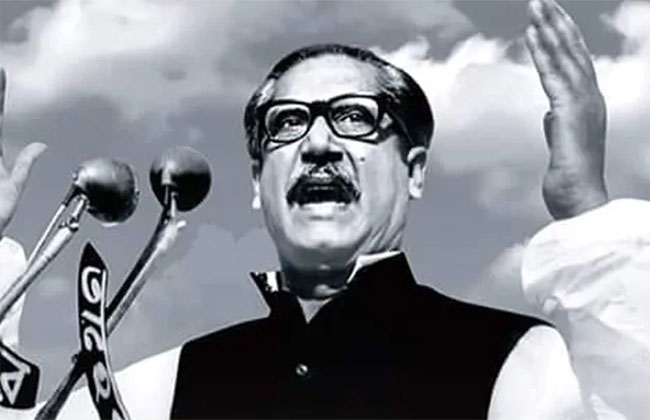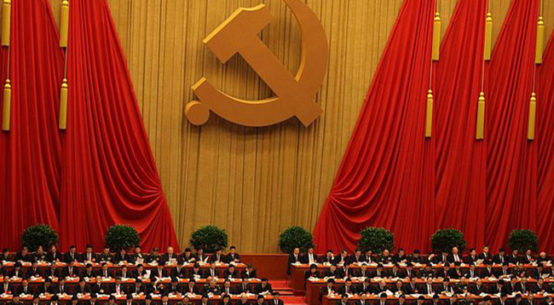
Hours after the genocidal campaign ‘Operation Searchlight’ was launched at zero-hours on March 26, 1971, Bangladesh independence architect Bangabandhu Sheikh Mujibur Rahman was detained and whisked away by Major ZA Khan of the commando battalion, who was stationed in Cumilla.
The first crackdown was ordered by General Yayha Khan to discipline the “autonomy seeking” people of Bangladesh.
Thus between January and early February 1971 codenamed ‘Operation Blitz’ was designed by Maj. Gen. Khadim Hussain Raja, commander of Eastern Command. The detail of the plan has been written in his book “A Stranger in My Country: East Pakistan, 1969-1971.
Regarding the book, he agreed with the publisher Oxford University Press that it would be published a year after his death in the year 2012.
The ‘Operation Blitz’ envisaged suspension of all political activities in the country [East Pakistan] and return to military rule. This meant that the armed forces of Pakistan would be permitted to move against “defiant political leaders” and to take them into “protective custody”.
On February 26, Lt Gen Sahabzada Yaqub Khan convened a Martial Law conference and informed that President [Yayha Khan] was going to announce the postponement of the National Assembly on March 1, 1971.
The ‘Operation Blitz’ was expected on March 1. The troops were deployed on February 27 to Khulna, Faridpur, Barishal, Bogura, Pabna, Mymensingh, and Tangail.
Battalions of the Pakistan military were already located in Darsana, Benapole, Ghoraghat, and Brahmanharia, besides army garrisons in Jashore, Chittagong, Cumilla, Rangpur, Sylhet and elsewhere.
Lt Gen Sahabzada Yaqub Khan, Chief of General Staff, Eastern Command and Admiral Syed Mohammad Ahsan, the Governor of East Pakistan scuttled Operation Blitz.
Yayha was visibly upset with Gen Yaqub and Admiral Ahsan’s for their failure to execute ‘Operation Blitz’. Both were later shunted out on the eve of the brutal crackdown ‘Operation Searchlight’ – both had to make an unceremonious exit from their career.
General Raja was also punished, after he fell from the grace of Lt. Gen Tikka Khan, Lt. Gen Niazi and Gen Rao Farman Ali for the delay in executing the crackdown. He returned to Rawalpindi GHQ in April 1971 and was not given any official position.
Meanwhile, the Awami League – the winning majority party in both wings of Pakistan has tightened its grip on the administration in East Pakistan. All over the country, the Bangladesh independence flag fluttered, while the de facto administration of the East Pakistan government reported to Sheikh Mujib’s headquarters.
Gen Raja lamented, that even the Inspector General of Police stopped attending briefings at Martial Law headquarters. Instead, he was reporting to Sheikh Mujib’s residence at Dhanmondi. Shafi-ul-Azam, the Chief Secretary to the Governor had expressed his inability to carry any instructions of the military junta.
Both Admiral Ahsan and Gen Yaqub confided to General Raja that they rarely got the President’s ear. Upon his arrival in Dhaka and stay at President’s House at Bailey Road (opposite Ramna Park), Yayha hardly spoke to them.
Both the senior-most officers were denied access to the President. Yayha ordered his staff officers in Rawalpindi to ignore messages and telephone calls of both Yaqub and Ahsan.
Yaqub in protest resigned on March 5, after Yayha refused to visit Dhaka on March 15 to hold dialogue with Mujib on his Six-Point political agenda.
Yahya in a speech on March 6 had given further provocation and squarely blamed Sheikh Mujib for the crisis. On March 7 in his fiery historic speech called upon the people for a non-violent, non-cooperation movement against the hegemony of the Pakistan military junta.
The fly-in of troops had begun from March 1, ignoring instructions of the Eastern Command in Dhaka that no further troops were needed to be deployed from Pakistan.
Yaqub and Ahsan understood that the gesture for a reconciliation of the President was absent. Gradually senior military generals were replacing the ‘doves’ with the ‘hawks’ in East Pakistan.
Lt. Gen. Tikka Khan (the ‘Butcher of Balochistan’) arrived quietly in Dhaka on 7 March 1971, as Governor of East Pakistan replacing Admiral Ahsan.
The next day, Tikka Khan found out that Chief Justice B.A. Siddiqui had declined to administer the Governor’s oath of office to him.
Hours before the infamous crackdown, Sheikh Mujib was kept in safe custody at a girls’ school (presently Shahid Anwar Girls School and College) in Dhaka Cantonment. Later he was shifted to the Guest Room of the Command House. After a few days, he was secretly moved to West Pakistan, Raja wrote in his book.
Raja’s advice was that Sheikh Mujib should be quickly flown out to Karachi in secrecy the same evening, but was ignored by Tikka Khan. He disagreed and said that he would publicly hang Mujib in Dhaka.
“Needless to say, my worst fears came true in the months to come. The rebels formed the core of the Mukti Bahini under Colonel M.A.G. Osmani,” he concluded.
Saleem Samad, is an independent journalist, media rights defender, recipient of Ashoka Fellowship and Hellman-Hammett Award. He can be reached at saleemsamad@hotmail.com; Twitter @saleemsamad

